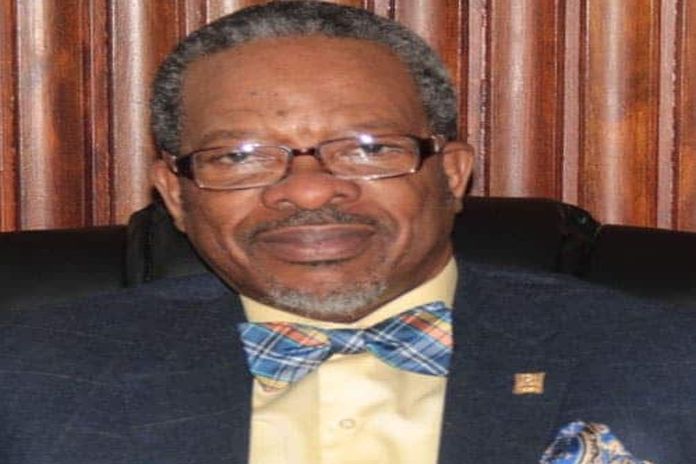By Ivelaw Lloyd Griffith
For a record 153 days, people in and out of Guyana interested in the affairs of South America’s sole English-speaking republic and the world’s newest petro-power-in-the-making endured electoral drama fatigue with the political roller-coaster there following the March 2 elections. The country’s political, civic, and business leaders and the citizens generally should be commended for what did not happen: there was no violence and rampage during the saga.
Anticlimactically, the opposition People’s Progressive Party Civic (PPPC) emerged triumphant and Dr Mohamed Irfaan Ali was sworn in as the nation’s ninth executive president on August 2. The following day the director of public prosecutions dismissed the criminal charges brought against the chairwoman of the Elections Commission. Don’t expect the political spectacle to completely end, though; among other things, the chief executive officer of the Elections Commission still faces some legal hurdles, and elections petitions about fraud will be filed by the vanquished APNU+AFC.
Yet, for all the angst involving the political contenders, the Elections Commission, the local and regional courts, CARICOM, the media, and international and local observers, the elections are the relatively easy part of the country’s democracy travails. Elections are necessary for democracy, but they are not sufficient. Good governance is a critical desideratum, and some key values stand out.
Integrity is one such value. The onus is on president Ali and the PPPC to act decisively to ensure that corruption doesn’t again become one of the socio-political maladies associated with governance in Guyana. The advent of oil and the money that it will bring necessitates having aggressive anti-corruption precepts and practices. Not just platitudes.
Equality is another prized democratic value, and the political and racial fissures that erupted in the aftermath of the elections make it incumbent on the new rulers to eschew political or racial triumphalism and work assiduously towards healing. Again, not in platitudinous terms, but practically. In this respect, the elusive constitutional reform should become a high priority. The 2020 elections highlighted some of the rebalancing needed in the winner-take-all political architecture and structural aspects of the Elections Commission.
Moreover, good governance would be undermined if the side-lining of local government elections, which had become a feature of earlier PPPC rule, is embraced again. Transparency is another vital good governance value. The spotlight shone on Guyana before and after the elections has increased the premium local and international stakeholders will place on transparency, especially given the influx of petro-dollars and the likely attendant corruption.
Dr Ali, who holds a doctorate in urban and regional planning from the University of the West Indies, assumes the presidency at a challenging time; at a time of increased racial anxiety because of the elections drama; in the age of COVID-19, when health security imperatives place new constraints on what government and citizens alike can do but also obligate government and citizenry to adopt “new normal” modes of operation; at a time when the pandemic’s global economic fallout will impact the revenue from the country’s oil as well as from its gold, agriculture, and timber.
President Ali also faces some stark realities about three Geopolitical Neighborhoods: the Proximate Neighborhood; Far Away Neighborhoods; and the Wet Neighborhood. As regards the first, Venezuela dynamics are crucial. The territorial controversy is before the International Court of Justice (ICJ), which held a public hearing on June 30 on the matter of jurisdiction. Venezuela, which repudiated ICJ jurisdiction, has already made public overtures about a political deal to settle the controversy. Team Ali should avoid deal-making and stick with the judicial course launched by Team Granger. And, it doesn’t have the luxury of missing a beat in the country’s presence and performance before the ICJ.
Even with the pandemic, Guyana’s eight billion barrels of oil reserves plus it gold, bauxite, agriculture, and timber have begun to attract people and businesses from Far Away Neighborhoods. Some will come lawfully, but many not so. The Ali government must prepare for this, not only by boosting border control, but also strengthening the nation’s public security capabilities, as crime—notably homicides, burglary, spousal abuse, prostitution, sex trafficking, illegal mining, and drug trafficking—likely will spike. Guyana also likely will become a cybercrime magnet. Luckily, the government will have enough oil revenue to make the requisite investments in the security sector, as well as in education, healthcare, and infrastructure.
But the third geopolitical space—the Wet Neighborhood—is, perhaps, the most challenging, given its existential implications for the nation. Guyana has a 285-mile Atlantic coast that is below sea level as much as six feet in some places. Not only does the capital, Georgetown, lie along that coast, but 80 percent of the country’s population lives there. The country is vulnerable to coastal flooding, and it experienced a devastating flood in January 2005, during a time of PPPC rule, which affected about 84 percent of the population, killed 34 people, and left an estimated US$500 million in damages.
Guyana’s coastline is subsiding due to groundwater extraction, soil compaction, and drainage of wetlands. Plus, the sea level has risen at a rate some six times the global average. The new government has the challenge and the opportunity to begin relocating the capital city. This will be a mega project to which president Ali could leverage his urban planning training. Funds wouldn’t be a problem. The problem will be one of political will and planning fortitude. Let me state the obvious: climate change will not await resolution of political—or economic or other—disputes. Unless Guyana’s new leaders act with alacrity, they might find themselves salvaging a nation battered by Mother Nature.
Sure, the elections are over. But now comes the hard part.







This article comprehensively covers issues that the new Government in Guyana has to grapple with. Excellent Lloyd Griffith.